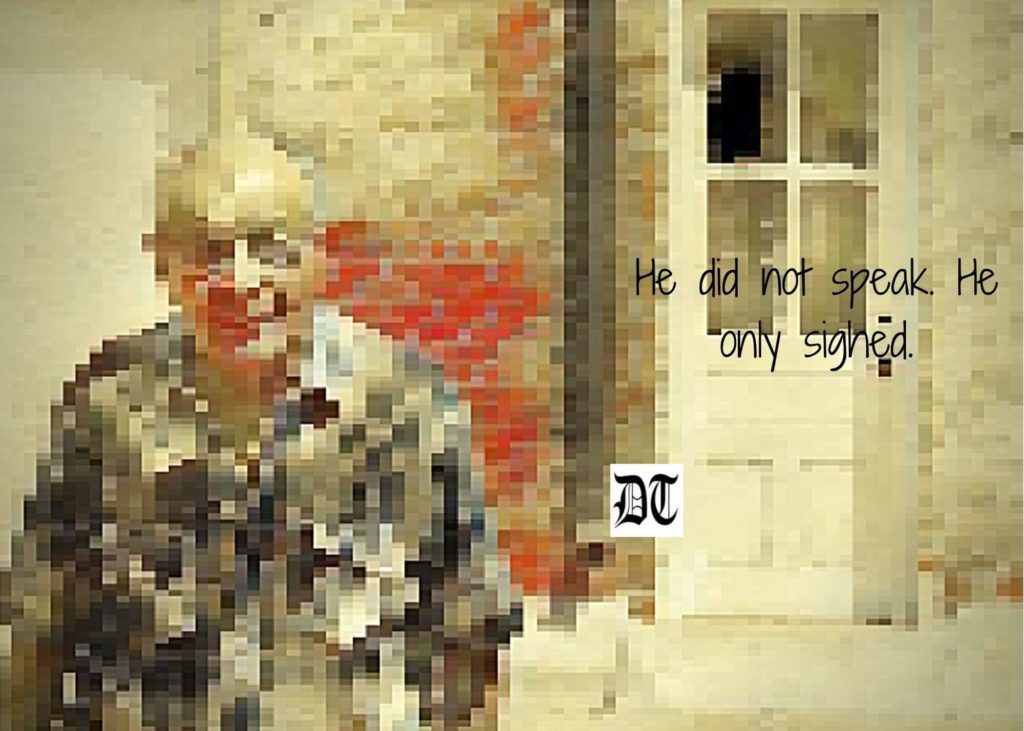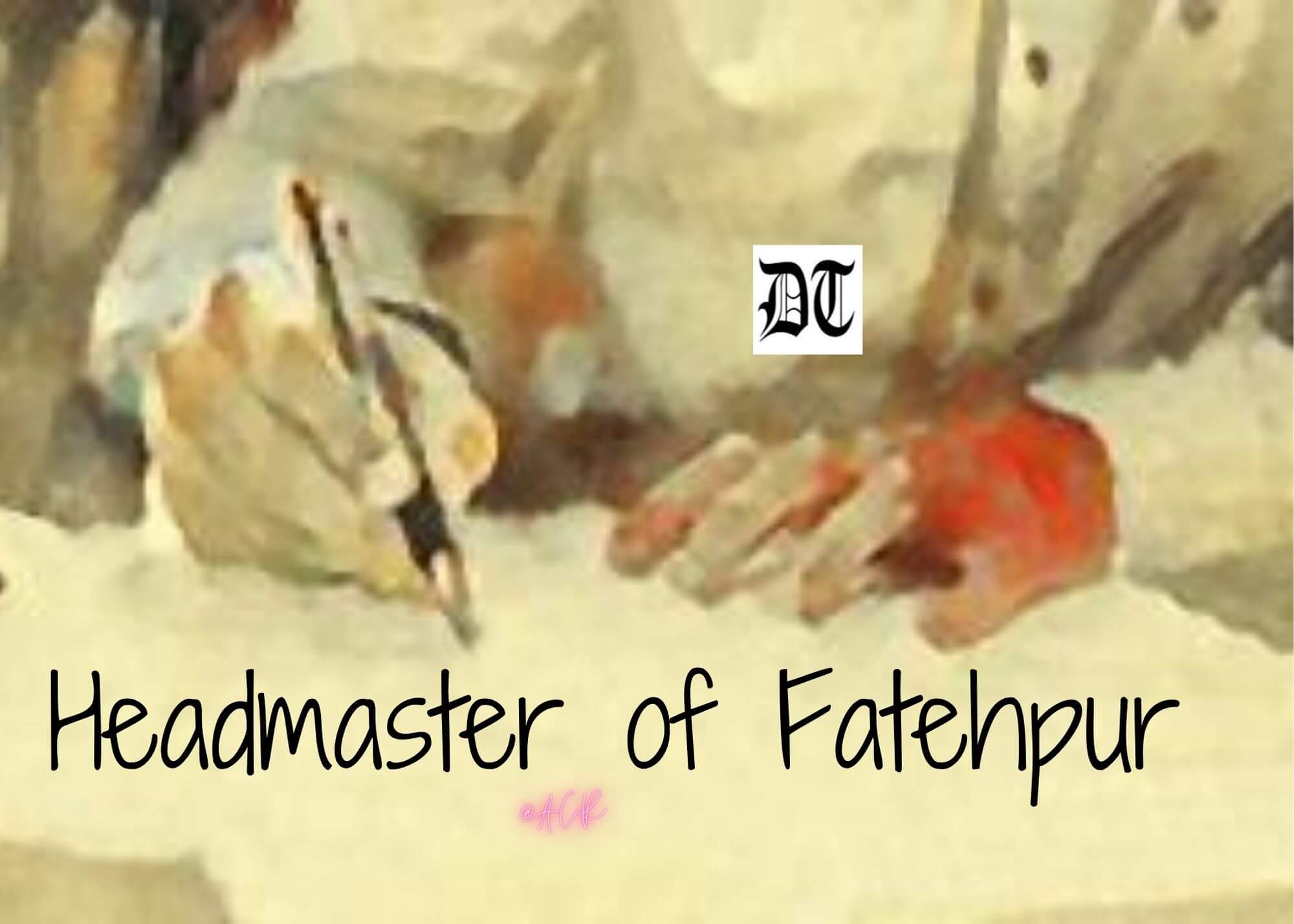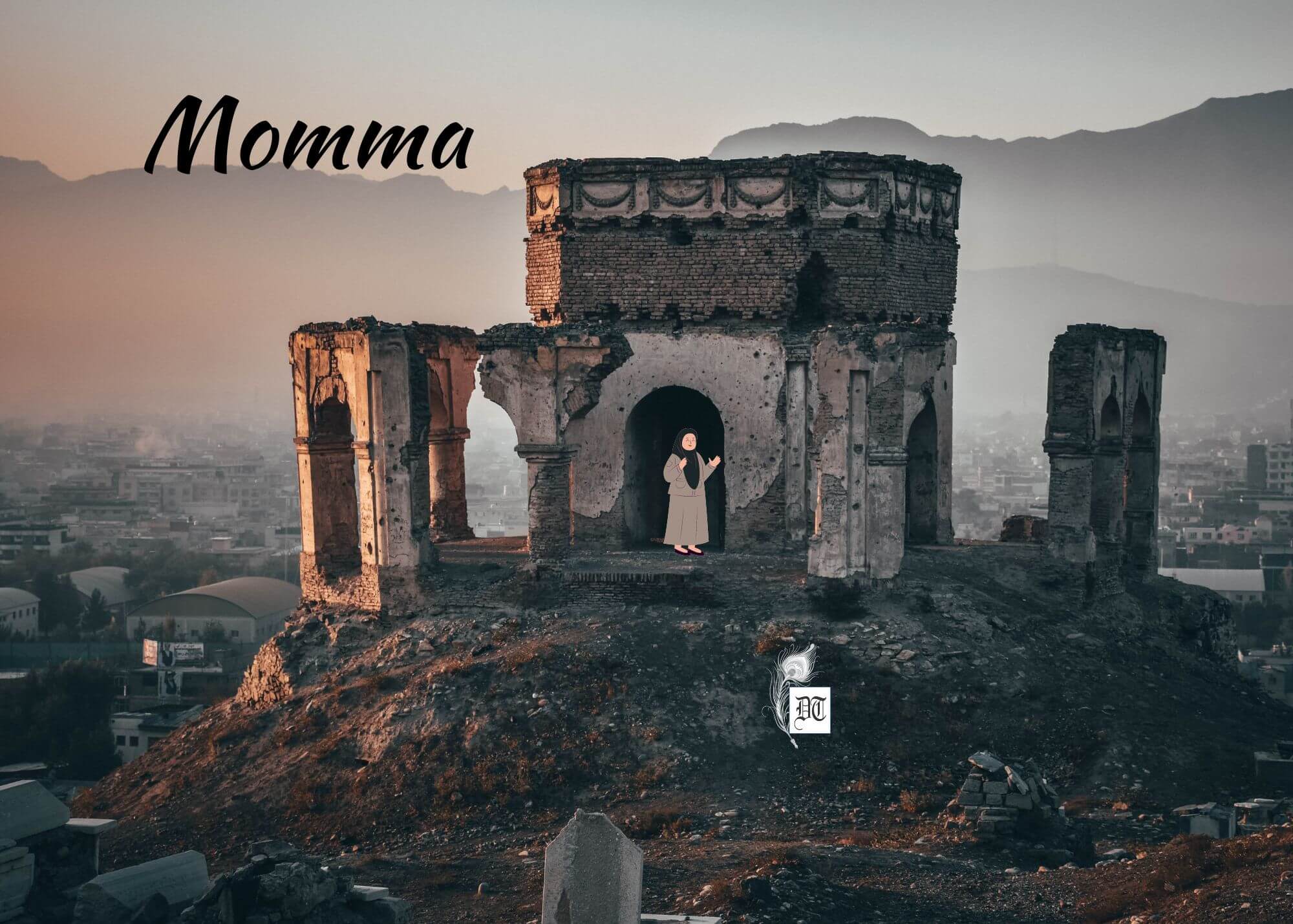Abu pens an enchanting short story, exclusively for Different Truths.
A cloudless afternoon in March at Berhampore.
“Let’s have tea, Sir,” I hinted.
As usual the retired headmaster did not welcome my move.
“It’s not my home,” I argued.
“So what? I don’t take tea at home or outside,” reiterated the headmaster, a half-bald, snub-nosed, well-built, medium height man.
He is my daughter’s tutor. He is a man of science, does not believe in astrology or apparition. I like his coming and going. Silently he comes and silently he takes leave. Never asks money for the month. He is sullen. And if he smiles, it is dry as bone.
The headmaster is a surprise. I meet him towards the dull days of his life. He has perhaps shared his days of gold and honey with someone somewhere, I think. His resigned look is an onslaught on my inquisitive psyche. I fail to strike a meaningful conversation with him. It pains me. Whenever I offer him tea for talk, he douses my fire, “Another day.” And that day has never come.
Today, I got an opportunity. He has come for releasing a book on Syed Badrudduja at Grant Hall. When the ceremony was over, I dragged him to Benuda’s tea shop, located just at the opposite of Grant Hall. The teashop is an oasis among unending rows of dry, dreary blocks. Painters, poets, writers, documentary makers, sculptors, singers, cover designers anytime you’ll find there. You’ll also find shoemakers, fruit sellers, hawkers, shopkeepers, sales girls, sales boys, beggars. Elections are round the corner. So the party flag bearers, poster boys, wall writers are nowhere.
Benuda’s tea shop is also known for its smell and dust. I dusted off a chair and made the headmaster cozily sit on it. The afternoon was hot and humid. An old ceiling fan with huge scarred blades was tiredly screeching overhead.
Headmaster would not drink tea but when I repeatedly requested, he could not avoid it. He sipped a cup of sugarless liquor tea. It seemed he was taking a bitter liquid. Such was the expression he put on his otherwise ruddy face.
“I know why you call me,” he pointed out suddenly, “and that’s why I am hesitating.”
I fell from the sky. I had no money with me. And he was hinting his last month’s due. He never asked his due. But today when I have no money in my wallet and he…
“How are you going, Sir? You look tense!” I diverted the track for my rescue.
He did not speak. He only sighed. I never asked about his family or home. It would be an encroachment on my part I always thought. Moreover, timely he comes, teaches and departs. Never have we got the chance for a leisurely talk.

Initially, he used to send me wishes such as good morning, have a nice day, a bucket of paperless roses too. He also sent me heart-healing messages on special days, festival days. But I was not sincere in feedback. So he stopped.
From one of my friends I came to know that he has a home, his wife is a health worker and he has two sons. Nothing more. ‘But why is he so sullen?’ I thought a thousand times. But I am still clueless.
“Siddik saheb, I’m getting weak. Not physically. I have no sugar or pressure. Eyesight too is perfect. I can read paper without glasses. At every night I drink a litre of milk even at this age. It keeps me going through the rugged terrain of life.”
“Rugged terrain! You have a home of your own, your wife is earning still. You have no daughter to be married off, only two sons. They will find their ways.”
I said nonchalantly. “You live in a fool’s paradise!” He rued, “I’ve blocked their ways.” Headmaster looked ashen. Beads of sweat dappled on his face.
“How? Being a responsible father, you can’t.” I gaped.
A silence followed.
“It’s family matter,” he began, “how can I share it? Yes, we have no daughter. And our sons have grown up. I am not worried about Rakesh, my elder son who changes one company and finds another. He is clever, hard working and practical. What he gets at month’s end is enough to run a family. So he is not our concern.”
“Happy to hear so. What’s about the younger one?” I casually asked.
“Water, my tongue is dry,” headmaster asked.
Benuda gave him a bottle and smiled at us. He admires unknown faces. But to headmaster it is a strange place surrounded by strange people.
He was the headmaster of Fatehpur High School for thirty years. School was his second home. Hardly had he taken a leave in his long service life. To him work is worship. Playing football, gardening, organising quiz and debate, creating scientific temperament among students were some of his hobbies. Updating Service Book, maintaining Provident Fund, updating midday meal distribution records, etc. — all he did at home single handedly by burning midnight oil.
Did he not believe his colleagues? He did. But he did not like their lackadaisical attitude. Work must be finished before the scheduled date. It was his work-ethics. So he brought home his colleagues’ service books, ledger books, etc. His wife did not like it. But ultimately she resigned and left her husband to his fate. Thus, he hardly found time for caring for his children. His wife too brought them up a bit indulgently.
“Did he get Shiksha Ratna?” You might ask.
“No, he did not. To have the award a teacher besides her/ his academic brilliance, administrative skill, needs extra qualities which he miserably lacked.”
“So sad! Good people have no value in today’s market-driven society!” You might mourn.
I did not agree. They are invaluable assets for the health of our society.
Headmaster gulped water, wiped forehead with a kerchief and said, “Ritish is a lover. He is jobless. He writes poetry and loves a girl, Pritha, a WBCS aspirant and she has qualified the main. Will Pritha marry my boy? Never! We fail to convince him of reality. A jobless poet! Ha ha ha! Today, I gave him two hundred for her ice cream; tomorrow his mother will give him five hundred for her facial. We have been doing this since 2015. Love makes him lonely. He has no friends. His room is his world. The walls are covered with Pritha’s photos. Laila-Majnu kind of love! He will not live without Pritha, but she will not now marry my boy. Bankers, businessmen, engineers, lawyers, professors are honking cars round the clock around her house.”
“Your boy is an emotional fool!” I bluntly said.
“Poets are fools. And Plato is, thus, right in banishing them from his Republic.” He nodded.
“But you are not Plato!”
“Yes, I am a headmaster of Fatehpur,” sadly he laughed, “I don’t believe in a loveless world ruled by only intelligence, logic, money, profit, greed and selfishness. I’ve spent my whole life for the cause of selfless love. I’ve spread light in darkness. I love my boys and girls — first learners from poor, peasant backgrounds. I have watered the seedlings and they have sprouted forth new leaves and borne flowers and fruits. Many of them are now established in four corners of the world. When I meet them my heart leaps in the sky. No, not because they earn huge money but they are good human beings. I have no regrets in life.”
The headmaster beamed, his eyes shone. He looked somewhat relieved.
Benuda while ladling tea pan suddenly opened a fresh page of his old diary. He handed it to him, “Name and mobile no, Sir.”
Headmaster hesitated, looked at me, and slowly wrote his name and no and took leave.
“See! A few men still walk on earth,” Benuda philosophised.
I said nothing. My eyes were on the dusty, cobwebbed shelves packed with old books, crumpled yellow papers, diaries, and cigarette cases.
Visuals by Different Truths





 By
By
 By
By
 By
By
 By
By
Loved this seminal piece of short story. So engaging, unalloyed portrayal of our pragmatic lifestyles. This artistic creation circumvents the redundant part, and it really enchants me much!